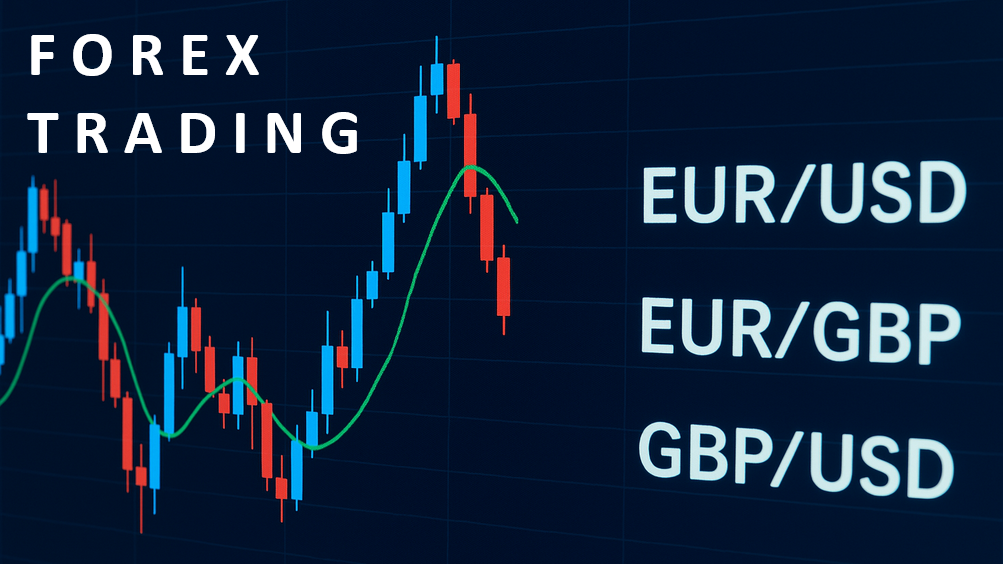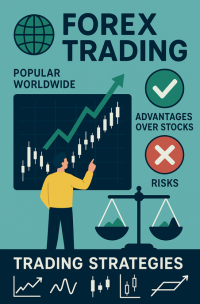While it offers opportunities, forex trading demands a specific mindset, financial discipline, and awareness of risks that may not align with every investor's profile.
Who Should Consider Forex Trading?
Forex trading can be rewarding for those with strong analytical skills, the ability to manage stress, and a willingness to continuously learn. The market operates 24 hours a day, which can be both a benefit and a drawback, depending on one's lifestyle and risk appetite. People looking for quick profits without understanding the fundamentals or lacking risk control often find themselves at a loss. So, it is better suited for disciplined individuals who approach trading with a clear strategy and realistic expectations.
How to Select a Proper Risk Strategy?
Choosing the right risk management strategy is crucial for surviving and thriving in the forex market. Here are a few key principles:
- Risk Per Trade: Many seasoned traders recommend risking only 1-2% of your total capital per trade. This helps preserve your account during losing streaks.
- Use of Stop-Loss Orders: Always use stop-loss orders to cap potential losses. Avoid widening your stop-loss to "give the trade more room" - it's often a recipe for deeper losses.
- Leverage Awareness: Forex brokers offer high leverage, which can amplify gains but also magnify losses. Beginners should stick with lower leverage (e.g., 1:10 or 1:20) until they gain more experience.
- Diversification: Avoid putting all your capital into a single trade or currency pair. Diversifying across multiple trades can reduce risk exposure.
- Back-testing and Journaling: Back-test strategies before going live and maintain a trading journal to learn from both mistakes and successes.
How to Avoid Scammers in Forex?
Unfortunately, the forex industry has been plagued by scams, especially targeting beginners. To avoid falling victim:
- Beware of Unrealistic Promises: Anyone guaranteeing profits or extremely high returns in a short time is likely a scammer.
- Check for Regulation: Always deal with brokers regulated by reputable bodies like the FCA (UK), NFA (US), ASIC (Australia), or CySEC (Cyprus).
- Avoid Signal Sellers and Robots Promising Easy Profits: Many "forex gurus" and automated trading systems are designed more to make money from you, not for you.
- Research and Reviews: Read user reviews, check for red flags on forums like Forex Peace Army or Trustpilot, and look for any past legal issues.
A very insightful article which analyzes how internet scams and frauds work, and how to stay protected can be found here.
How to Select a Forex Broker?
Choosing the right broker is foundational to a successful trading journey. Consider the following factors:
- Regulation: Ensure the broker is licensed by a recognized authority. This ensures a degree of security and transparency.
- Trading Platform: Look for user-friendly, reliable platforms like MetaTrader 4 or 5, with robust charting and execution features.
- Spreads and Commissions: Lower fees mean more profit. However, don’t sacrifice safety for cost. Look for competitive but fair pricing.
- Customer Service: Reliable and responsive customer support can save you time and trouble, especially when dealing with trade execution or fund withdrawals.
- Deposit and Withdrawal Options: Make sure the broker provides convenient, secure, and fee-free options for transferring your money.
Can Auto-Trading or Copy-Trading Help Beginners?
Yes, auto-trading and copy-trading can be valuable tools for beginners — if used wisely.
- Copy-Trading allows you to mirror the trades of successful traders. It's a great way to learn, but choose providers with transparent performance records and risk levels that match your comfort zone.
- Auto-Trading Systems can automate strategies based on predefined rules. While this removes emotional trading, it also requires a solid understanding of the underlying algorithm and constant monitoring.
That said, neither method is a shortcut to guaranteed success. They are best used as learning tools or for diversifying your approach — not as a substitute for foundational trading knowledge.
Conclusion
Forex trading offers exciting possibilities, but it's not a one-size-fits-all endeavor. Proper risk management, careful broker selection, and a healthy skepticism of “too good to be true” offers are essential. For those just starting, tools like copy-trading can provide a helpful bridge into the complex world of currency markets - as long as they're paired with education and realistic expectations.
You can find a very helpful article for how to choose the best Forex Broker here, and why this broker should be a regulated firm (here).








